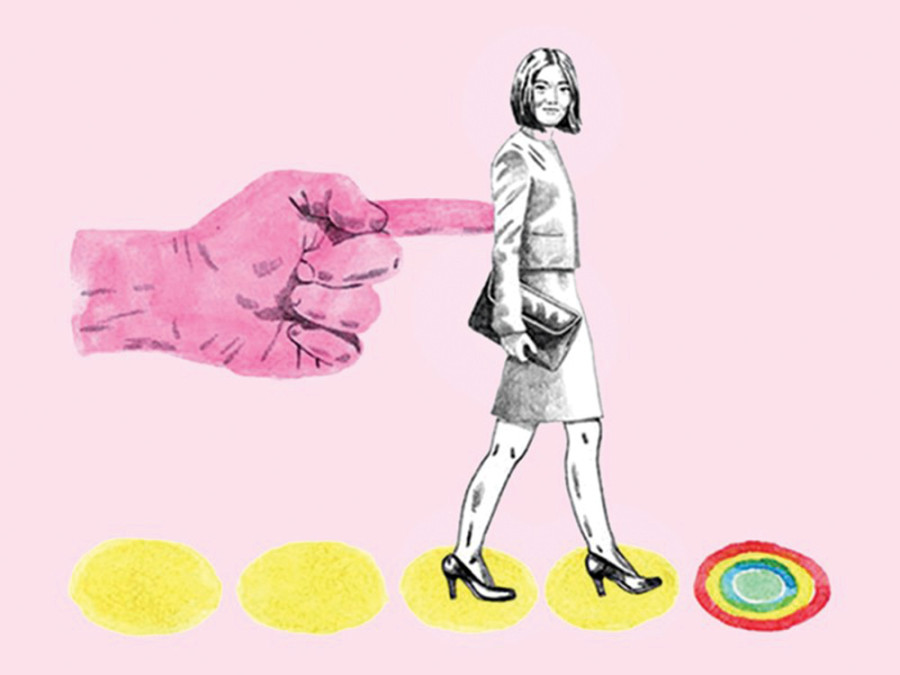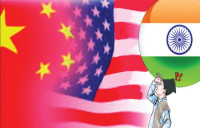Opinion
Some men never change
Top male politicians are trying to undo the rights given to women by the constitution
Asmita Verma
As long as discrimination and inequalities between men and women remain, the potential of the human family to create a peaceful and prosperous world will not be realised. The concept of political parties and party politics is relatively new in Nepal in comparison to the West. Political parties were banned for 30 years during the Panchayat era. After the restoration of multiparty democracy in 1990, they made a comeback. Women played a significant role during the series of freedom struggles in Nepal. During the Rana regime, women like Mangala Devi Singh and Sahana Pradhan joined the movement to bring democracy in the country.
From 1947 to 1952, several women’s organisations emerged to raise political and social consciousness among women in Nepal. In 1960, after the king dismissed a democratically elected government and imposed the Panchayat system, members of women’s organisations protested by waving black flags at public processions and were imprisoned. Women actively participated in the 1990 People’s Movement to get rid of the autocratic Panchayat system. The contribution of women in the 2006 People’s Movement was equally significant. However, there is very little participation of women at the decision-making level in all sectors. State policy is the most important factor that ensures increased participation of women and pro-women men in policymaking bodies. The sources of women’s representation in lawmaking and state bodies are political parties. There is no doubt that men and women worked equally hard for the protection of human rights and good governance. However, only men fill state positions.
Feudal mindset
Nepal witnessed unprecedented political, economic and social changes in the last one and a half decades. The social development indicators have changed for the better. Women are participating in large numbers in private sector jobs like banking and the media. Nepali men have also changed to a great extent, but there is still a category of men who have not changed at all. Most of them are at the very bottom or at the very top. Unfortunately, it is the ones at the top, the political patriarchs, that are specialised in ensuring that the more things change, the more they remain the same, especially for women.
Despite the guarantees of equality and inclusion inserted in political manifestos and proclaimed in political speeches, the senior most male politicians in Nepal are now in the process of undoing the equal rights granted to women by the constitution. Despite accepting the doctrines of Marx and Mao and promising to adhere to socialist principles, feudalism still rules the hearts and minds of political patriarchs. Equality of women in terms of citizenship rights under any and all circumstances is viewed by them as being against tradition and patriotic values. All the grand posturing and cosmetic changes will not whitewash the feudal mindset of the male leaders.
In parliamentary democracy, the members of the executive belong to one or various political parties. Almost all the legislators are members of political parties except for the independents. In view of this, the concern of women’s socialisation, empowerment and reservation expressed by legislators is primarily based on the policies, programmes and manifestos of political parties. Therefore, it is pertinent to understand the policies of the political parties on empowerment and reservation since they are the institutional mechanism to represent the aspirations and hopes of women. The Nepali Congress (NC) is one of the largest political parties that has been working continuously for more than 50 years to strengthen democratic values and norms. The party is committed to women’s proper representation in different institutions and gives special encouragement for government service.
Paucity of women leaders
Recent political developments have been landmarks in the history of Nepal in terms of women empowerment. Three out of the top five positions in the state are held by women. But it does not represent the status of women in society. Empowering women at the grassroots in accordance with societal changes is the real necessity. A majority of marginalised women still lag behind their male counterparts in terms of opportunities. In order to fill the gap, the top political parties should focus on women’s participation in their main political wings. The paucity of women leaders in the decision-making organs of the NC has created this vacuum in leadership, so it is necessary to include more women from its Nepal Students’ Union and Youth Wing. The NC, a party that is hard working, full of vigour and that enjoys solidarity and harmony, must be committed to reform and innovation. As the NC is the largest party in Parliament and the Opposition, it needs to unite psychologically and physically. The NC must shape a nation free from the exploitation and maltreatment of women.
Let’s have a dream. It is time for women to actively take an interest in politics and come forward with a strong desire and willpower. Women will have opportunities to rise to the highest level in politics, business, diplomacy and other spheres of life. The challenges of implementing the new Constitution of Nepal should be faced equally by women. The most vital element, as far as the role of women is concerned, shall be governed by their determination and motives, and that shall enable them to perform to the best of their capability as able and responsible citizens of Nepal.
Verma is a youth leader in the Nepali Congress




 14.07°C Kathmandu
14.07°C Kathmandu










